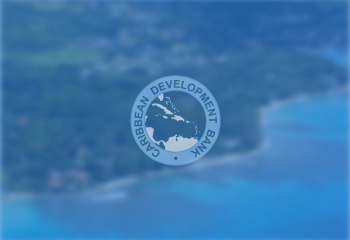Multi-Stakeholder partnerships critical to achieving Caribbean development goals
If the Caribbean is to achieve the goals committed to in the 2030 Agenda for Sustainable Development, multi-stakeholder partnerships among State and non-State representatives will be critical. This was discussed at a recently held workshop - Caribbean Partnerships II: Co-Constructing Transformative Economic Policy. The event brought together a diverse group of approximately 40 participants, representing Caribbean civil society organisations, governments, academia, and regional institutions, to discuss methods of strengthening partnerships among civil society, the private sector and government to substantively contribute to regional development choices.
The three-day workshop, held from May 23-26, in Trinidad and Tobago, was convened by the Institute for Gender and Development Studies at University of the West Indies (Cave Hill and St. Augustine) and Regions Refocus, in collaboration with CDB and Friedrich-Ebert-Stiftung (FES). Its aim was to consider how new, progressive approaches to policymaking, in areas such as debt sustainability, climate change and economic diversification, can drive development in the region.
“Here in the region, there is growing recognition that truly democratic process and action are about people' knowledge of and inclusion in the everyday policy processes that affect them. Through our governance work, CDB supports the functioning of local government; the strengthening of civil society capacity and engagement and civic participation and empowerment. It is in this context that we have partnered with UWI-IGDS, Regions Refocus and FES to collaborate on Caribbean Partnerships, one of the desired outcomes of which is the creation of a sustainable mechanism for citizen and civil society engagement in policy decisions and action," said Patricia McKenzie, Vice-President, Operations at the Caribbean Development Bank (CDB).
During the workshop, participants also assessed how best to revitalize public engagement and state support for effective implementation of the Sustainable Development Goals, with a view to advancing economic and gender justice in the Caribbean.
“The goals and targets are still giving enough room for different interpretation and I believe it is very important to be engaged in national and regional debates on how the goals should be achieved and which policies through which instruments should be implemented. But in order to envision sustainable social and economic development broad alliances are necessary. The knowledge and experiences of women and feminist groups plays an important role for developing alternative development pathways in order to achieve the goals set by the new agenda," said Judith Wedderburn, FES Representative, Jamaica. She was delivering remarks on behalf of Dr. C√§cilie Schildberg, FES, Berlin.
“By building solidarities across activists, academics, and allies in government we can co-construct policy alternatives that will make a difference to the lives and livelihoods of women and marginalized communities across the Caribbean", said Anita Nayar, Director, Regions Refocus.
Deputy Principal of UWI St. Augustine campus, Rhoda Reddock, said the institution was particularly pleased to be associated with the workshop: “In establishing academic programmes of women' and gender studies in the region we saw these centres‚Äînow institutes, as members of and partners in the regional and global movement for social justice, feminist futures and a better world. This collaboration with the Freidrich-Ebert-Stiftung, Regions Refocus and the Caribbean Development Bank is another example of the kind of work that we do."
This is the second Caribbean Partnerships workshop, with the first held in January 2015. The previous meeting revealed the need to deepen the conversation on transformative economic analysis and policy-making by strengthening multi-stakeholder modes of engagement. This second workshop drew on regional and international experiences in advancing new approaches to economic and gender justice. Examples were provided by gender bureaus, planning departments, and ministries of social transformation, and budget divisions of Antigua and Barbuda, Dominica, Jamaica, St. Lucia, and Trinidad and Tobago; academics from the University of the West Indies community and beyond; and representatives from South Centre, UN Women, UNDP, and the Organisation of Eastern Caribbean States Commission. Participants also included representatives from women' groups, environmental groups and other NGOs, trade unions, and other social movements.
